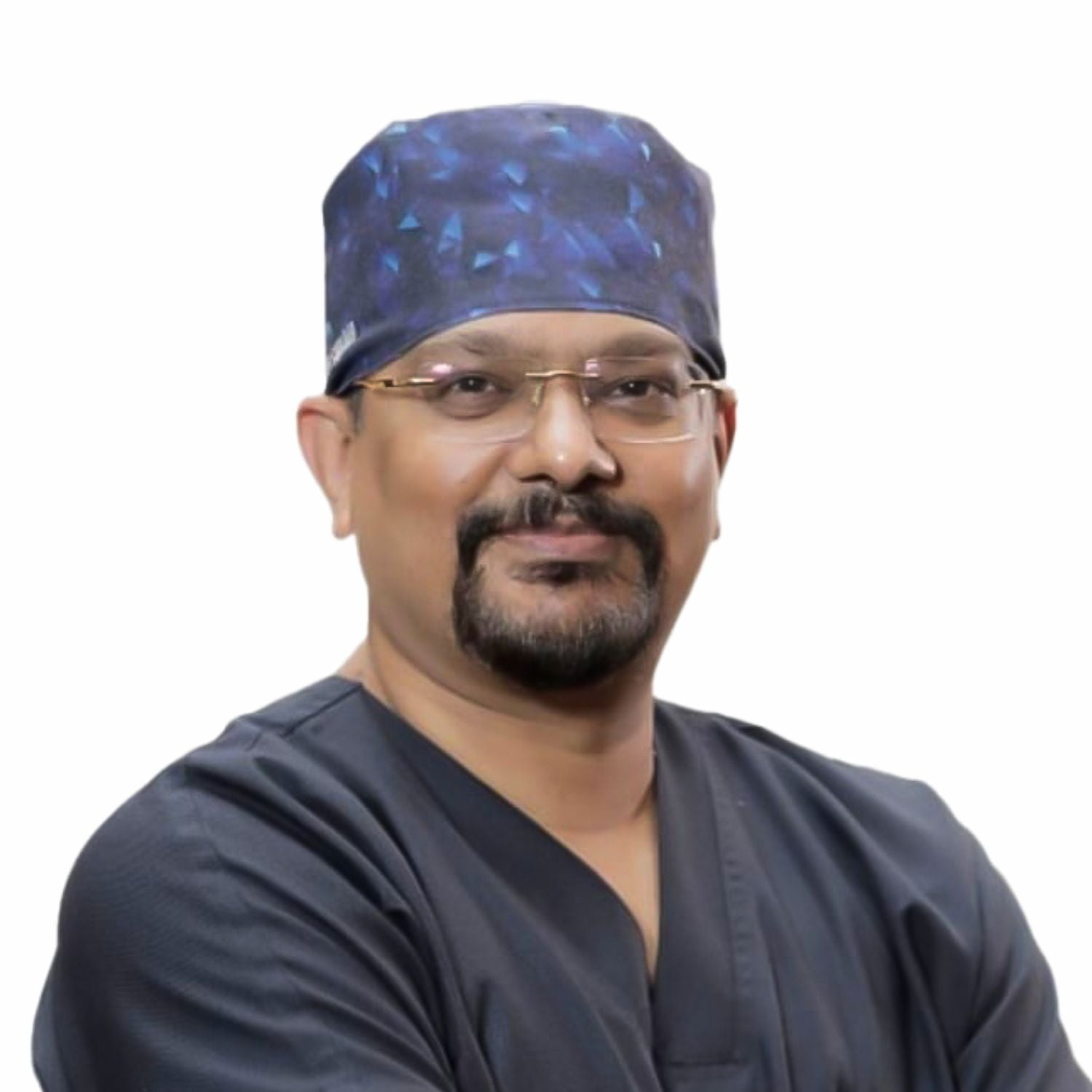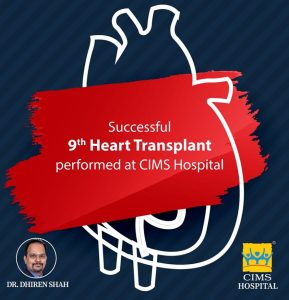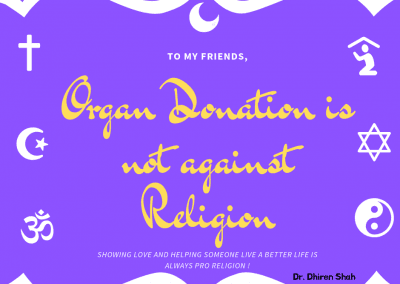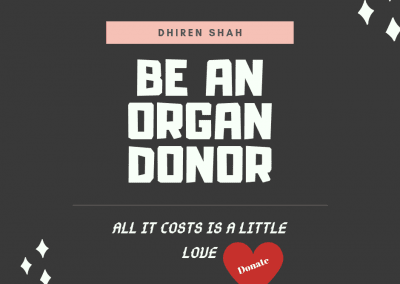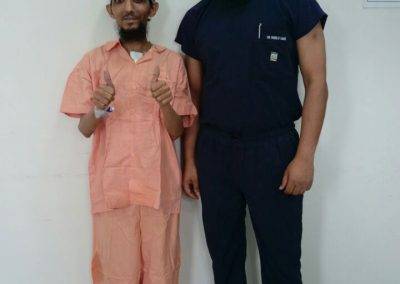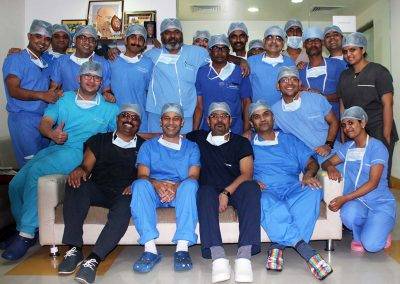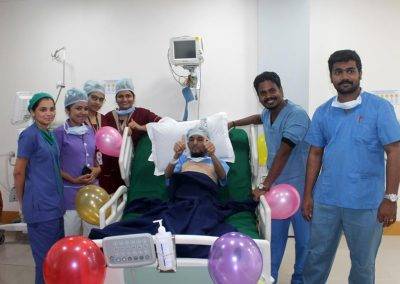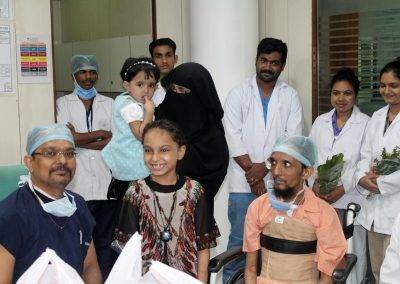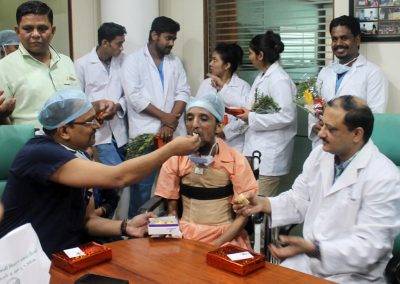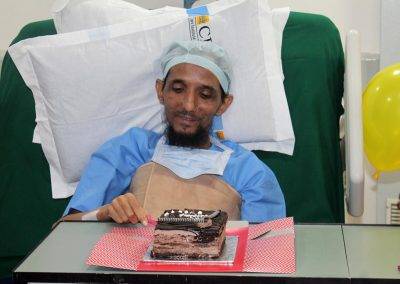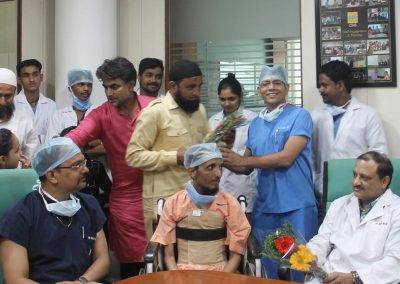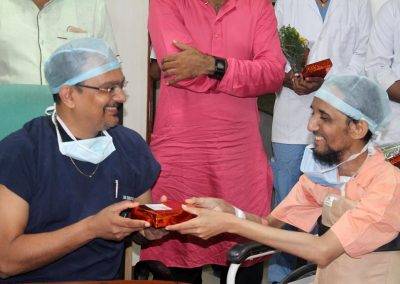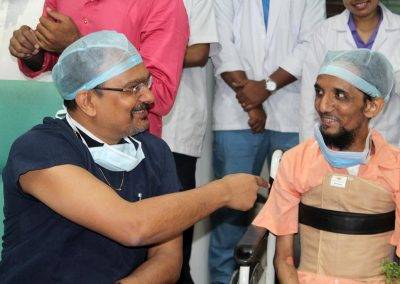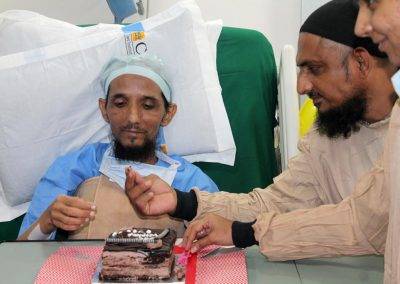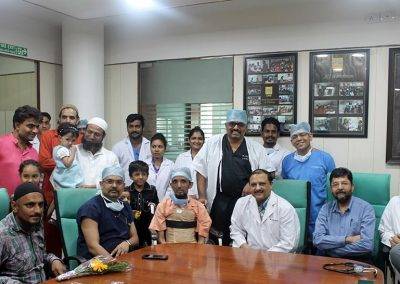Organ Donation
Dr. Dhiren Shah guides you through the process of organ donations and transplants with a complete understanding of the process and videos from some of his best heart transplant and organ donation cases.
CIMS Hospital is known as the best organ transplant hospital led by Dr. Dhiren Shah – amongst the best cardiac surgeons in Ahmedabad and recognised amongst the top heart transplant doctors in the world.
What is Organ Donattion?
Organ donation is a reality that has been avoided or ignored since ages in our country.
Organ donation as defined is the process in which the donor (person who donates) agrees to give his/her biological tissues or organ whether alive or dead to the needy person (the recipient) under a signed consent form.
Why is organ donation important?
Organ donation is important as:
- Helps in grieving: Knowing the person is not with you but is still somehow living out there makes a difference.
- Donating organs is rewarding and gives positive experience.
- The list of the needy continues to grow and being added in a donor’s list helps.
- One donation can save many lives.
- Opportunity to help others
Why do people fear organ donation?
Many people fear organ donation stating it might affect their normal functioning of the body and may have some complications in old age, which is totally wrong. There are no stated side effects of organ donation (as long as your are not donating something that does not have an extra for you) that has been reported till date which justifies it is totally safe to donate an organ and save a life.
If alive, what organ's can I donate?
Example – You can’t donate a heart while you are still alive for obvious reasons. You can however donate one kidney without damaging your own system. As long as you have one out of two organs in your body functioning, you may be allowed to donate while you are still alive. Most major donations occur post your own death – through a donor card process. In this case, every usaable organ may be used or as per your descretion, which includes your heart.
Myths & Facts of Organ Donation
People have many myths regarding donation of their organs such as:
- Having a medical condition stops one from donating organs
- During the time of transplant, the transplant team assesses the person and makes sure if (s)he is fit enough to donate an organ regardless of their disease.
- Against one’s religion
- Every religion says donating an organ is total act of purity and is considered pure in the eyes of god.
- Christianity says it’s pure act of charity.
- Islam says it takes you more close to Allah.
- Hindus supports saying it’s a selfless deed.
- Old age can’t
- Any age group can happily donate an organ and help others.
- Not meant for poor
- Any healthy person regardless of their social status can donate organ.
- Other caste organ won’t be helpful
- The only thing that won’t be helpful is donor’s organ not matching to the recipient’s.
- Only rich can get access easily
- It is often believe that those who are rich can easily get their organs donated or can get first in the line, this is not true, donations are purely based on medical information like blood types.
- Have to pay for donation
- Nor the person nor the family is charged for the organ donation.
If all the myths mentioned above are taken into consideration, we get to know that any person regardless of age, gender, caste, rich or poor, having a medical history or not can be a donor.
Also, there is no differentiation on the basis of receiving an organ on the basis of rich or poor and caste.
How is Heart Transplant Performed?
Everybody expects someone to be a hero for them but, by donating an organ you can be one yourself. If not while living donate the organs when you die it might save one’s life, give someone eyes.
The procedure:
- The surgeon makes a cut (incision) down the chest of the patient over breastbone and the bone is separated, allowing the surgeon to access the heart
- Then the heart is removed, leaving behind a section of the right and left atria, the two upper chambers of the heart
- The new heart is connected to the aorta, the main artery from the heart, the pulmonary artery, and the remaining part of the atria
- The bypass machine should be taken off when the new heart starts beating.
- The breastbone will be closed with metal wires, and the tissues and skin will be closed with stitches.
When can I not donate an organ?
CONTRA-INDICATIONS FOR DONATION
- Certain cancer
- Type B and C jaundice
- Aids
- Chronic organ failure
- Uncontrolled infection
- Alzheimers
How can I donate an organ ?
To promote organ donation our government has a website http://www.notto.gov.in where you can sign up today to save a life and become a hero that you always wished to become.
Go to http://www.notto.gov.in
⬇️
Click on sign up
⬇️
Select user type as donor
⬇️
Fill rest personal details
⬇️
Verify at your email
⬇️
Enter OTP sent to email
⬇️
Login
⬇️
Donor pledge form will open
⬇️
Enter details and submit
⬇️
Mail will be received stating you are a donor now.
Which organs can I donate ?
Organs that can be donated as of now include:
- Eyes
- Lungs kidneys
- Heart
- Pancreas
- Liver
- Intestine
- Other tissues like
- Cornea
- Tendons
- Arterial valves
- Veins
- Skin
- Bone
- Blood
Remember some of these organs can only be donated only at end of life, as they may be required for you – to stay alive.
How are Organ Donations performed ?
Organ donation is carried out by the transplant team in the following steps:
- Identify the potential donor
- Evaluate the donor
- Authorize the organ recovery
- Maintenance of the patient
- Matching organ to potential recipient
- Offering organ regionally, then nationally
- Transplanting organ
- Surgical recovery of organs
- Preparing recipient for the surgery
- Distribution of the organ
- Funeral and burial plans
- Follow up with the family and hospital
With the help of following steps the organ donation procedure can be completed easily.
Who performed the first Heart Transplant Sugery in Gujarat ?
Glad you asked! I, Dr. Dhiren Shah performed the first heart transplant in Gujarat which by default became the first successful heart transplant in Ahmedabad.
The Cardiac team at CIMS Hospital in India is the best at heart transplants in Gujarat. We have performed nine successful heart transplants under the guidance of the best cardiac surgeons and cardiac doctors in Ahmedabad and Gujarat.
ORGAN DONATION PROCESS
Hospital Organ Donation Registry coordinates the process of cadaver organ donation i.e. organ donation after death and transplantation.
There are two ways to donate organs:
By pledging for organ donation when a person is alive
By consent of family after death.
If you are interested to donate your organs, please fill the form below and we will get in touch with you.
Heart Transplant Movies
Heart Transplant Video in English
(300 MB+. Watch with fast internet only or download for offline viewing)
Heart Transplant Video in Hindi
(97 MB+. Watch with fast internet only or download for offline viewing)
6th Heart Transplant Video
(191 MB+. Watch with fast internet only or download for offline viewing)
Heart Transplant Video with former Gujarat Chief Minister Vijay Rupani
(166 MB+. Watch with fast internet only or download for offline viewing)
Dr. Dhiren Shah Talks about Heart Failure
(200 MB+. Watch with fast internet only or download for offline viewing)
